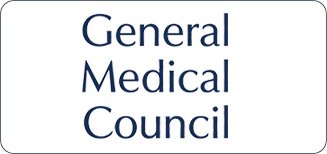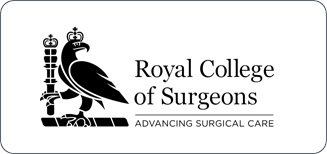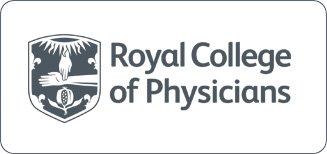PPPD Specialist in London

PPPD Specialist in Harley Street, London
PPPD, or Persistent Postural-Perceptual Dizziness, is a condition that manifests as physical unsteadiness prompted by various social or environmental factors. It is estimated that as many as 4% of the population experience PPPD with some experiencing a level of chronic dizziness that undermines their daily quality of life. A PPPD specialist in Harley Street, London at Harley Street AVM has the expertise and experience to diagnose and provide treatment for PPPD.
What causes PPPD?
PPPD typically occurs in the wake of another event that caused a person to experience dizziness, vertigo or a loss of balance. These potential trigger events include:
- Ménière’s Disease
- BPPV
- Concussion
- Whiplash
- Stroke
- Vestibular neuritis
- Panic attack with dizziness
- Vestibular migraine
While some adverse drug interactions may cause bouts of dizziness it is not believed at this time that these incidents can trigger PPPD.
Treatment
A PPPD specialist at Harley Street AVM can provide expert diagnosis and treatment that trains the body to reclaim the centre of balance that’s been lost due to PPPD. Detailed investigations such as While each person is different – and we are careful to tailor our therapeutic approach to the individual – treatment regimes typically include, but are not necessarily limited to, one or more of the following:
- Medications – carefully selected medications can be used with great effectiveness in the treatment of PPPD. Treating any underlying cause such as BPPV
- Vestibular therapy: This type of therapy comprises various exercises that help restore proper alignment to the vestibular system.
- Immersive VR therapy: The goal of this therapy is to use virtual environments to bolster the vestibular system to respond more naturally to visually stressful environments.
- Sensory reweighting: This type of therapy is designed to help the brain properly integrate sensory input.
- Cognitive behavioural therapy: When combined with other therapies CBT has shown great promise in helping to treat PPPD.
If left untreated PPPD can greatly undermine a person’s personal and professional life. In order to gain control of this troubling condition early detection and treatment is crucial. If you have had enough of PPPD wreaking havoc with your peace of mind, book an appointment with a PPPD Specialist in Harley Street, London at Harley Street AVM today.

Frequently Asked Questions
Is PPPD just another name for anxiety?
Psychological factors including anxiety and depression can contribute to the development and triggering of PPPD. However, there could be an underlying physical cause to symptoms which requires to be investigated and identified by a qualified vestibular specialist medical doctor. . PPPD can affect both men and women of any age, although it tends to be more common in people under the age of 50.
What are the symptoms of PPPD?
Symptoms can vary slightly from person to person. Some describe a feeling that their insides are in motion even while they are standing or sitting still. Others describe a sense of being in a boat that is rocking on the ocean. While still others describe their body swaying while they’re otherwise still. At Harley Street AVM we often encounter patients who talk of feeling “drunk” although they have not consumed alcohol. A sense of physical detachment from reality is also fairly common. Patients can experience brain fog, difficulty with concentration, disorientation and intolerance to busy environments such as supermarkets.
What causes PPPD?
PPPD almost never occurs as a stand-alone condition. In the majority of cases, people begin to experience PPPD in the aftermath of some other event, such as a vestibular migraine, vestibular neuritis or BPPV. It may also occur in the aftermath of a traumatic event such as a violent car crash or other physical or psychological trauma. There could be a persistent underlying inner ear or brain abnormality which drives the PPPD.
How is PPPD diagnosed?
PPPD is a diagnosis of exclusion. That means that it can be only diagnosed after a specialist doctor takes a detailed history, undertakes a full examination and, after you have had appropriate tests and scans to rule out other conditions. There are currently no diagnostic tests that can confirm the presence of PPPD.
Is treatment available for PPPD?
While there is no quick fix, there are treatment options available that can help. Over time it is possible to manage symptoms to such a degree that the person can once again experience a more or less normal life. But it will take time. Medication, Physiotherapy, desensitisation therapy, and psychological treatment when used in concert with one another have been known to produce beneficial results.
Testimonials
What People are Saying
Testimonials
Our Associations












The Care Quality Commission (CQC) is a public body of the Department of Health and Social Care established to regulate and inspect health and social care services in England.
CQC registration is a marker for standards of care. It is a mandatory requirement of all organisations which provide vestibular care or diagnostics.
Harley Street Audiovestibular Clinic is fully registered and compliant with all the stringent CQC requirements, ensuring you care is in the best possible hands.
About Audiovestibular Medicine (AVM)
Vestibular migraines are a particularly vexing condition that can make it difficult for a person to conduct their day-to-day business. Obtaining relief from the most significant symptoms is of paramount importance. For accurate vestibular migraine diagnosis and expert treatment contact Harley Street AVM by calling 020 3480 9630 or writing us at: info@harleyavm.com.












